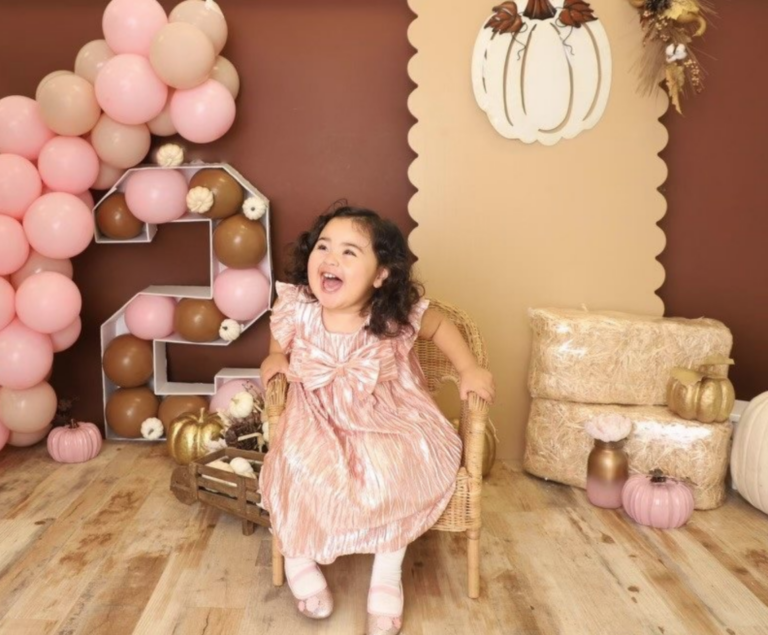When Luilka was 9 years old, her mother passed away – she moved with her father and sister to her grandmother’s in the Dominican Republic where opportunities were limited. Her father worked as a dishwasher, and at 14 she started work too, doing whatever she could to help out at home.
Upon finishing high school, her father moved the family to Boston where Luilka started taking English classes at Bunker Hill Community College and taking odd jobs as a cashier, busser, food runner, and any work she could get to make a little money for her family.
It was around then that Luilka met the man she thought she could trust and love. Not soon after, she became pregnant with her daughter Alia. Being at high risk, she moved in with Alia’s father at his parents’ house. That’s when a dark side of him came forward as their fights grew frequent and cruel.
Not soon after giving birth, Luilka left to run errands with Alia and came home to find all her clothes in a trash bag in front of the house – a clear statement that she and Alia were no longer welcome as part of the family. As much as Luilka didn’t wish for Alia to grow up separated from her father, she knew it wasn’t a good or safe environment for them.
She took their things and moved Alia to her sister’s home, where there wasn’t space for the new mom and her little baby. They slept on the floor as Luilka tried to figure out their next move. Her aunt had moved to the states too, and so they joined her household where they slept on a blow up bed. Alia would cry through the night and Luilka felt the guilt of disrupting her family who needed their rest for long work days ahead.
Not knowing where to turn, she called the emergency line for domestic violence. They sent Luilka and Alia to one house, then another, then one motel and then another. Eventually they moved into shelter together, and Alia’s father took her to court to make sure that she couldn’t take her out of Massachusetts, even though she had no long term support in the area and the cost of living was expensive.
Covid hit when Alia was just five months old. Even though Luilka was ready to go back to work, everything was shut down. Living in the shelter, she started talking to other moms living there. They encouraged her and shared what they’d learned –those friendships helped her figure out what type of program she wanted for Alia, one that would take care of her as she figured out their future. One of the moms told her to check out Horizons and that decision changed everything.
“Alia cried her first two days of school,” Luilka confided. “But the teachers helped her get into the new routine and on day three, she headed into her classroom happy and confident. When someone is treating your child well and she’s happy to be there, and they love her as family, it’s easier to move forward.”
Meanwhile, Luilka started meeting with Foluke, her family advocate.
“I had many fears and questions. How am I going to get a permanent and decent job so I can provide for my daughter? And how could I do it with nobody to take Alia when the center was closed? The only job I could get was working at a supermarket. But Foluke helped me figure out the options. Together we set goals. She encouraged me to build my skills so I’d have more options. She told me about training and helped me look into schools. I did the work, but Foluke helped me organize the steps I needed to take. She helped me figure how to get where I wanted to be. When you have so much anxiety, so many bills, you can’t focus on the next thing. I’m grateful she was there.”
Luilka knew that going back to school was the way to build a career. Job training was available so she could become a dental assistant. Luilka started at Boston Institute of Careers for training, and got up at 5 in the morning every morning to use the shower in the shelter before anyone else.
“That’s the only way I would have time to get Alia and myself to school on time. I stayed up late doing homework and then started again the next day at 5am. I made it through my program. And then I completed another 320 hours of internship in a clinic. I took tests, studied for my license and got it. That makes me feel proud. All that work was worth it.”
Luilka started her job as a dental assistant in April and she has plans to continue school so she can become a dental hygienist. Alia, now a toothy toddler, has watched her mom accomplish her goals and has unwavering encouragement that anything is possible for her too.

“I want Alia to be able to dance, play the piano, whatever she wants to do. I want to have the ability to give her opportunities – of course, I want her to be a doctor, but she’ll decide that for herself!”
Luilka shared with a smile that Horizons has helped make these hopes possible.
“Back when I was in the shelter, I couldn’t see the path forward. But everything is in front of me now.”
“Quando no puedas correr, camina. Quando no puedas caminar, gatea. This is an inspirational saying my auntie used to say to me. It means “When you can’t run, walk. When you can’t walk, stroll.” In other words – do what it takes to get you to the goal even if it means taking small steps. That’s what I’ve been doing and Horizons has helped me all along the way.”